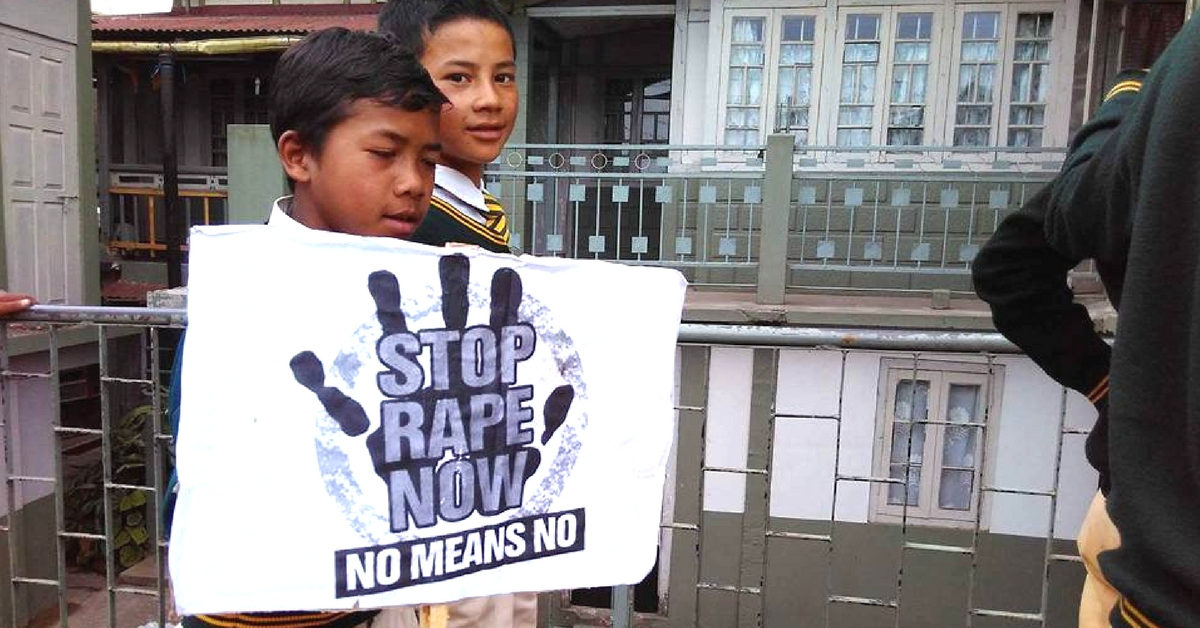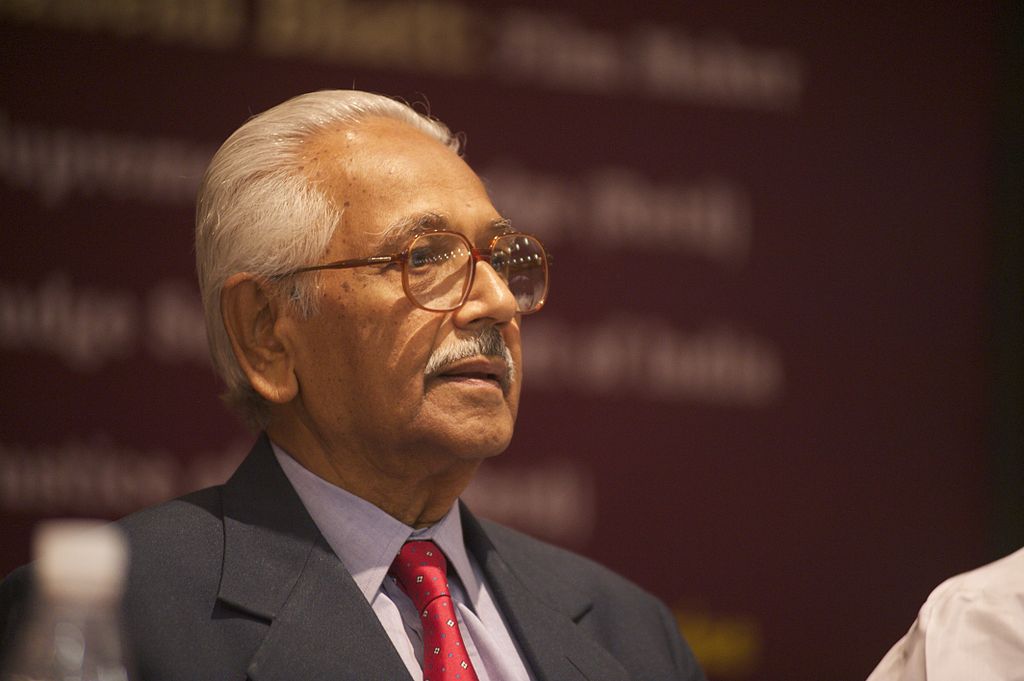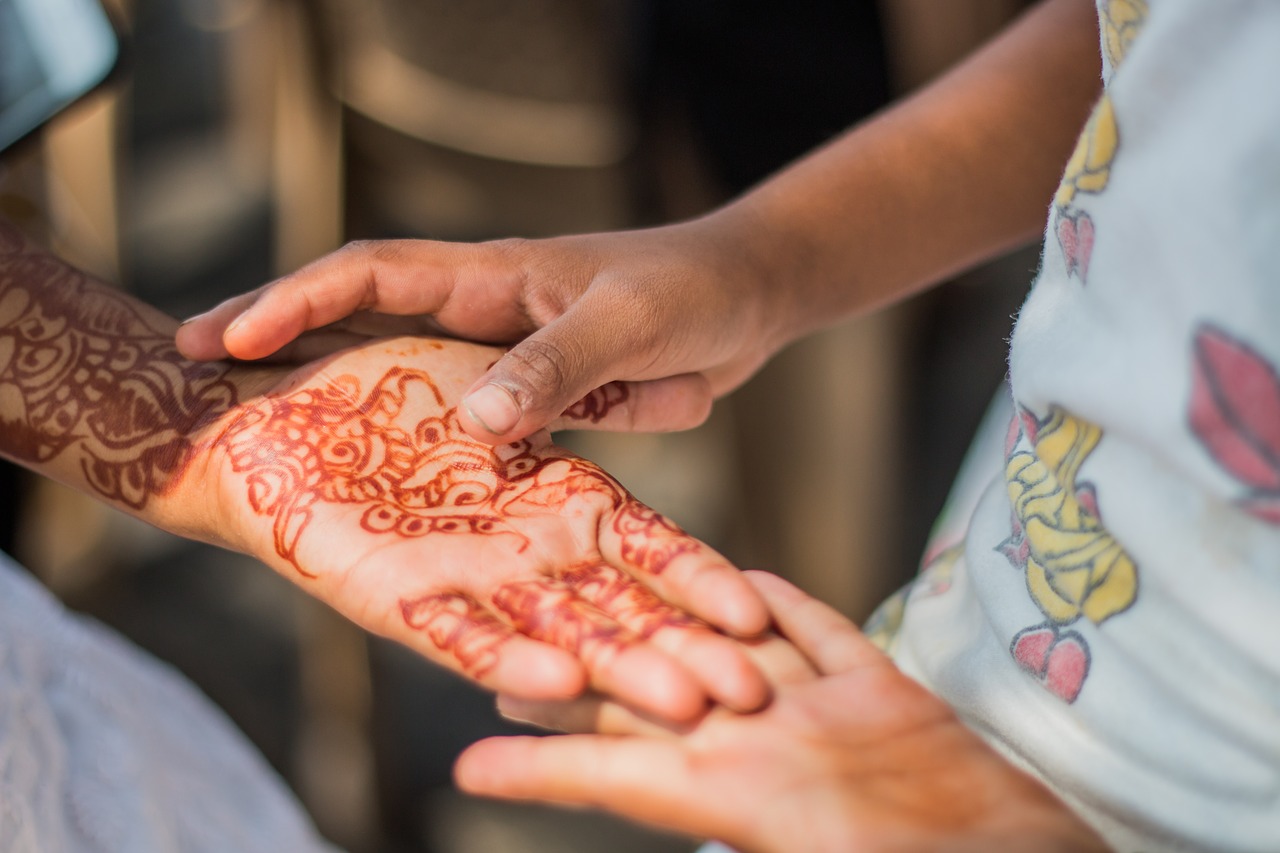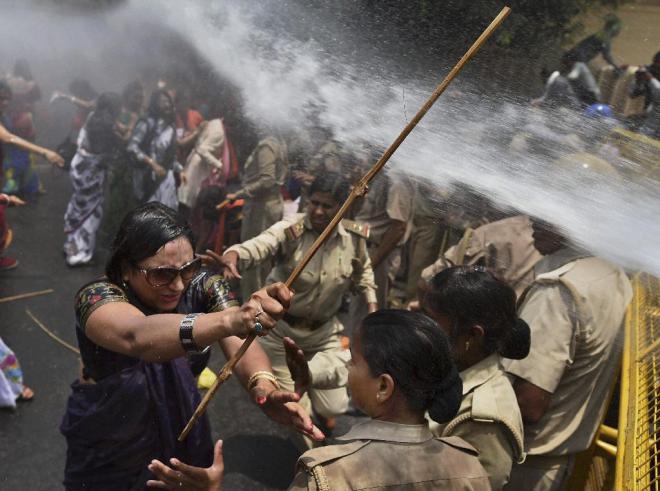Opinion: Outrage Gets Us ‘Death’ Ordinance, But Does Little To Stop Child Rape
Real and long-lasting change is often a slow grind and unglamorous. It’s time we directed our outrage towards the real problems.

Have any victims been heard? If the punishment for both murder and rape is same, it is a huge consequence. Can you imagine now, how many offenders would allow their victims to survive now that rape and murder have the same punishment.
These are the words of the Delhi High Court, which has raised some pertinent questions days after the Centre passed the Central Law (Amendment) Ordinance, 2018, which allows courts to sentence those convicted of raping children below the age of 12 to a minimum of 20 years to life term or death.
It asked the government whether it had conducted any due diligence or “scientific assessment” before passing the ordinance and whether the death sentence is a “deterrent to rape”.
“Have you been to the root cause of the crime, or it is the effect of the public outcry,” the bench further asked. Raising the point that most of the perpetrators behind the commission of these crimes are known to the victims (family members, neighbours or acquaintances) the court asked whether “family members will come out and depose against their relatives’ family.”
Ever since the public outrage against the rape and murder of an eight-year-old girl in Kathua and allegations of rape against an Uttar Pradesh legislator, the government has come under increasing pressure to placate constituents. The hurriedly passed ordinance is a response to that public outcry. However, the Delhi High Court’s observations must give us reason for pause.
What does the data about the commission of child rapes tell us?
According to the National Crime Records Bureau (NCRB), of the 64,138 child rape cases that came up for trial under the Protection of Children from Sexual Offences (POCSO) Act read with Indian Penal Code (IPC) Section 376 (punishment for rape) in 2016, a mere 1,869 – less than 3% – resulted in convictions.

Another glaring statistic is that in 94% of the cases of rape against women and children in 2016, the perpetrator was known to the victim. As per NCRB records, the perpetrator was either a family member, neighbour or a known acquaintance of the victim.
“Far from reporting the crime, the death penalty is going to deter the victim from reporting sexual assault when the offender is from the family or is known to them. This will lead to the crime being suppressed and the victim being left completely helpless.
Without strengthening the investigation process or the prosecution, creating an enabling environment both in the court and outside, and improving the conviction rate, the sentence is irrelevant,” said Supreme Court advocate Vrinda Grover to The Indian Express.
At a convention of parents of victims, child rights activists and legal luminaries in the national capital against the Centre’s ordinance, a mother to a victim spoke out. Her daughter had been raped by the husband, the child’s biological father, according to the Press Trust of India.
“I want him (her husband) to be alive, I want him to compensate us monetarily for the rest of his life so that I can bring up my children. Why should he hang and be free of his responsibilities? I fear if the death penalty is introduced, children like mine would be raped and then killed so that there remains no evidence,” she told the audience.

At the same convention, Anuja Gupta of the RAHI Foundation, which works with survivors of child sexual abuse and incest, also spoke out against the ordinance. “The move to bring in the ordinance was based on brutality and not on any understanding of the dynamics of incest and child abuse, which is of epidemic proportions in India and is taking place in our homes as a matter of daily routine,” she said, according to PTI.
In her 20 years of experience working with rape survivors, what she found was that they do not want to carry the burden of punishing their abuser, particularly if that person happens to be a family member. Since in 94% of the cases of rape against women and children, the perpetrator was known to the survivor, the introduction of the death penalty could further lessen the chances of reporting such cases to the police or testifying before the court, she added.
In fact, the Justice Verma Committee, which was set up by the Centre following the horrific 2012 Delhi gang-rape case, argued that there is “considerable evidence that the deterrent effect of the death penalty on serious crimes is a myth”.
“According to the Working Group on Human Rights, the murder rate has declined consistently in India over the last 20 years despite the slowdown in the execution of death sentences since 1980. Hence, we do take note of the argument that introduction of the death penalty for rape may not have a deterrent effect,” the Committee recommended.

Despite the recommendations of the Justice Verma Committee, the UPA government passed the Criminal Law (Amendment) 2013, which allowed courts to award death sentences to those convicted of rape not amounting to homicide under IPC Sections 376E (repeat offenders) and 376A (commission of rape that leaves the victim in a persistent vegetative state).
As a result of these amendments, the perpetrators of the heinous gangrape at the Shakti Mills compound in Mumbai were sentenced to death in 2014. A lawyer with the Majlis Legal Centre, which provided legal support to the victims, has also spoken out against the death penalty.
“Death penalty shifts the burden on to the victim as, since the offenders are known to them in most cases, they are likely to turn hostile or not report the crime,” said advocate Persis Sidhva.
What we need is better policing and more efficient legal system
Besides awarding death sentences for the rape of a child below 12 years, the ordinance also proposed amendments to CRPC Section 173 and 309, as a result of which the investigation of all rape cases have to be mandatorily completed within two months.
The same time limit extends to the trial of all rape cases, and appeals have to be disposed of in 6 months. If the investigation is not completed within 60 days, the accused are entitled to bail.
Even the trials for the 2012 Delhi gangrape case and the 2014 Shakti Mills case took more than two months. Considering these cases were in the media spotlight, one can imagine the fate of those cases that are not highlighted.
Under the previous Criminal Law (Amendment) Act, 2013, the “trial shall, as far as possible, be completed within a period of two months” and that “investigation in relation to rape of a child may be completed within three months”.
The operative phrases here are “as far as possible” and “maybe”. Why? The framers of these laws understood the limitations before the police and judiciary in handling these cases.
This isn’t to suggest that the investigation and the trial process should be slow, but that the reasons for why they are slow haven’t been addressed.
According to a study detailing the POSCO Act by the National Law School, Bengaluru, survivors turn hostile in “67.5% cases, and testified against the accused in only 26.7% cases”. As a result, most cases filed under POSCO Act fall apart since the prosecution is unable to prove its case.
Lawyers and public policy experts working on the ground cite time-consuming trial proceedings as a reason for this. The long timelines leave space for the accused to put pressure on victims and families into backtracking. Making matters worse is if the accused in this case is a family member/relative.

Why do these trial proceedings take so long? This is because our courts are overburdened with cases. “Proposing fast-track courts do not help when the number of judges remains the same or if the prosecutors are not capable of handling such cases,” Sidhva told The Indian Express.
Even though there are separate courts for POSCO-related cases, states like Maharashtra have 17,300 cases pending trial, while Uttar Pradesh has 15,900 and Madhya Pradesh at 10,950. Other states, meanwhile, have 3500-5000 POSCO cases pending, according to this Times of India report.
Read more here to understand the contours of the problem and potential solutions.
Another concern with regards to the lack of conviction also emerges in the investigation stage. The Unnao case, for example, points to the inability of the local police to take action against the local legislator accused of rape.
The police in India are governed by the colonial-era Police Act of 1861 which envisaged their abject loyalty to the rulers. Various government-appointed commissions were set up to bring about reforms in policing. However, these reports continue to gather dust.
According to a 2016 report released by the Bureau of Police Research and Development, on an average, only 1% of the total police expenditure is allotted to police training at these academies. The glaring omissions of the police at the local level, as highlighted in the famous Aarushi Talwar case, does point to a lack of basic training and knowledge of evidence collection and storage.

There is also a severe shortage of workforce as well. Last July, the Centre told the Lok Sabha that there is a shortage of over 5 lakh police personnel in the country as compared to their overall sanctioned strength. The police to population ratio in India is 180 personnel per 1,00,000 population, which is significantly lower than what the UN recommends (222 per 100,000 population).
Read more about some of the institutional challenges that beset the police.
To facilitate long-term change and deter child rapes from happening in this country, the government must undertake the long-term process of reforming the police and judiciary to ensure the speedy investigation and trial into such cases.
Real and long-lasting change is often a slow grind and unglamorous. It’s time we directed our outrage towards the real problems.
(Edited By Vinayak Hegde)
Like this story? Or have something to share? Write to us: [email protected], or connect with us on Facebook and Twitter.
NEW: Click here to get positive news on WhatsApp!
If you found our stories insightful, informative, or even just enjoyable, we invite you to consider making a voluntary payment to support the work we do at The Better India. Your contribution helps us continue producing quality content that educates, inspires, and drives positive change.
Choose one of the payment options below for your contribution-
By paying for the stories you value, you directly contribute to sustaining our efforts focused on making a difference in the world. Together, let’s ensure that impactful stories continue to be told and shared, enriching lives and communities alike.
Thank you for your support. Here are some frequently asked questions you might find helpful to know why you are contributing?


This story made me
-
97
-
121
-
89
-
167











